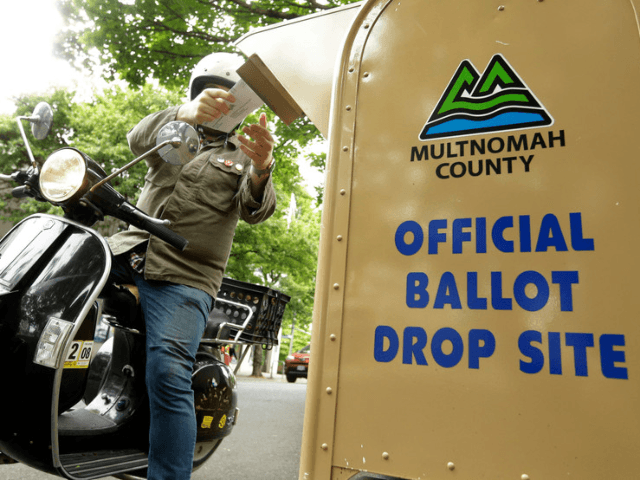Two Democrat Super PACs created a $7.5 million advertising campaign on Monday to encourage voters to vote-by-mail in several states crucial to flipping the White House and the Senate to Democrat control.
The campaign by Priorities USA Action and the Senate Majority PAC is the first major advertising push by these big-money groups to encourage registered Democrats to cast their mail-in-ballots before Election Day, CNN reported.
Tens of millions of Americans will cast a vote by mail for the first time this year as states rush to offer voting options given the current coronavirus pandemic.
Thirty-five states will allow every voter to request a mail-in-ballot, and nine states and Washington, DC, will automatically send a ballot to every registered voter.
Democrats such as former first lady Michelle Obama implored voters during last week’s Democratic National Convention to cast their ballots early and plan on voting absentee.
President Donald Trump, on the other hand, has said that vote-by-mail is a source for fraud.
His 2020 re-election campaign recently sued the state of New Jersey for letting residents decide whether they want to vote by mail or vote in person. Trump has, however, defended absentee voting as he has used the method to vote in Florida.
Trump has also warned activists could double-count ballots, print off their own ballots and sign them, or take ballots out of mailboxes.
Democrats such as Obama claim vote-by-mail for the November election is necessary to protect people from the coronavirus. But Breitbart News reported recent data had not shown a compelling public health justification for vote-by-mail.
Wisconsin is one of the only U.S. states that held its primary election with in-person voting after the nation’s coronavirus lockdowns began.
Only a few dozen people at maximum were confirmed to have contracted the virus after participating either as voters or poll workers, and none of those cases were fatal. Out of the 413,000 participants, that equals an infection rate below two-hundredths of one percent.
Just days later, South Korea held national elections, which did not result in any new coronavirus cases.

COMMENTS
Please let us know if you're having issues with commenting.